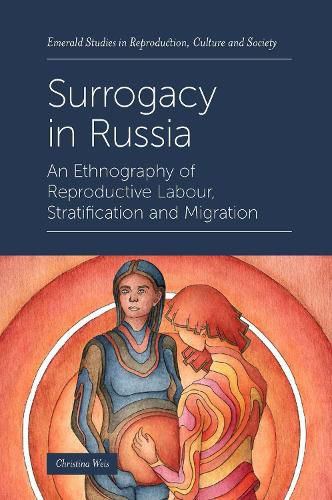Readings Newsletter
Become a Readings Member to make your shopping experience even easier.
Sign in or sign up for free!
You’re not far away from qualifying for FREE standard shipping within Australia
You’ve qualified for FREE standard shipping within Australia
The cart is loading…






This timely and fascinating feminist ethnography is the first of its kind to focus on commercial surrogacy workers in Russia and from other countries of the former Soviet Union. Examining surrogacy workers’ reproductive labour, and experiences of stratification and migration, the study presents innovative insights into current research on global surrogacy practices and travels for assisted reproduction. It links to wider fields of studies, such as ethnicity, feminism, women’s and gender studies in the post-Soviet sphere.
Weis expertly brings together rigorous ethnographic research, feminist debates and anthropological theory to explore the attributed significance of origin, citizenship, race, ethnicity and religion, and the cultural framing and social organization of surrogacy as an economic exchange; thereby challenging and contributing to the discourse of surrogacy as a gift, a labour of love, a maternal sacrifice or work.
Tracing surrogacy workers’ journeys for surrogacy work across Russia, Weis introduces geographic and geopolitical stratifications as two new lenses of stratified reproduction to analyse how surrogacy in Russia builds on and propels surrogacy workers’ mobility and results in reproductive migrations.
Given the rapid global increase in the use of surrogacy and its increasingly internationalised nature, Weis’s research has implications for surrogacy users, medical practitioners and regulators, as well as researchers concerned with (cross-border) surrogacy, reproductive stratifications and reproductive justice.
$9.00 standard shipping within Australia
FREE standard shipping within Australia for orders over $100.00
Express & International shipping calculated at checkout
This timely and fascinating feminist ethnography is the first of its kind to focus on commercial surrogacy workers in Russia and from other countries of the former Soviet Union. Examining surrogacy workers’ reproductive labour, and experiences of stratification and migration, the study presents innovative insights into current research on global surrogacy practices and travels for assisted reproduction. It links to wider fields of studies, such as ethnicity, feminism, women’s and gender studies in the post-Soviet sphere.
Weis expertly brings together rigorous ethnographic research, feminist debates and anthropological theory to explore the attributed significance of origin, citizenship, race, ethnicity and religion, and the cultural framing and social organization of surrogacy as an economic exchange; thereby challenging and contributing to the discourse of surrogacy as a gift, a labour of love, a maternal sacrifice or work.
Tracing surrogacy workers’ journeys for surrogacy work across Russia, Weis introduces geographic and geopolitical stratifications as two new lenses of stratified reproduction to analyse how surrogacy in Russia builds on and propels surrogacy workers’ mobility and results in reproductive migrations.
Given the rapid global increase in the use of surrogacy and its increasingly internationalised nature, Weis’s research has implications for surrogacy users, medical practitioners and regulators, as well as researchers concerned with (cross-border) surrogacy, reproductive stratifications and reproductive justice.